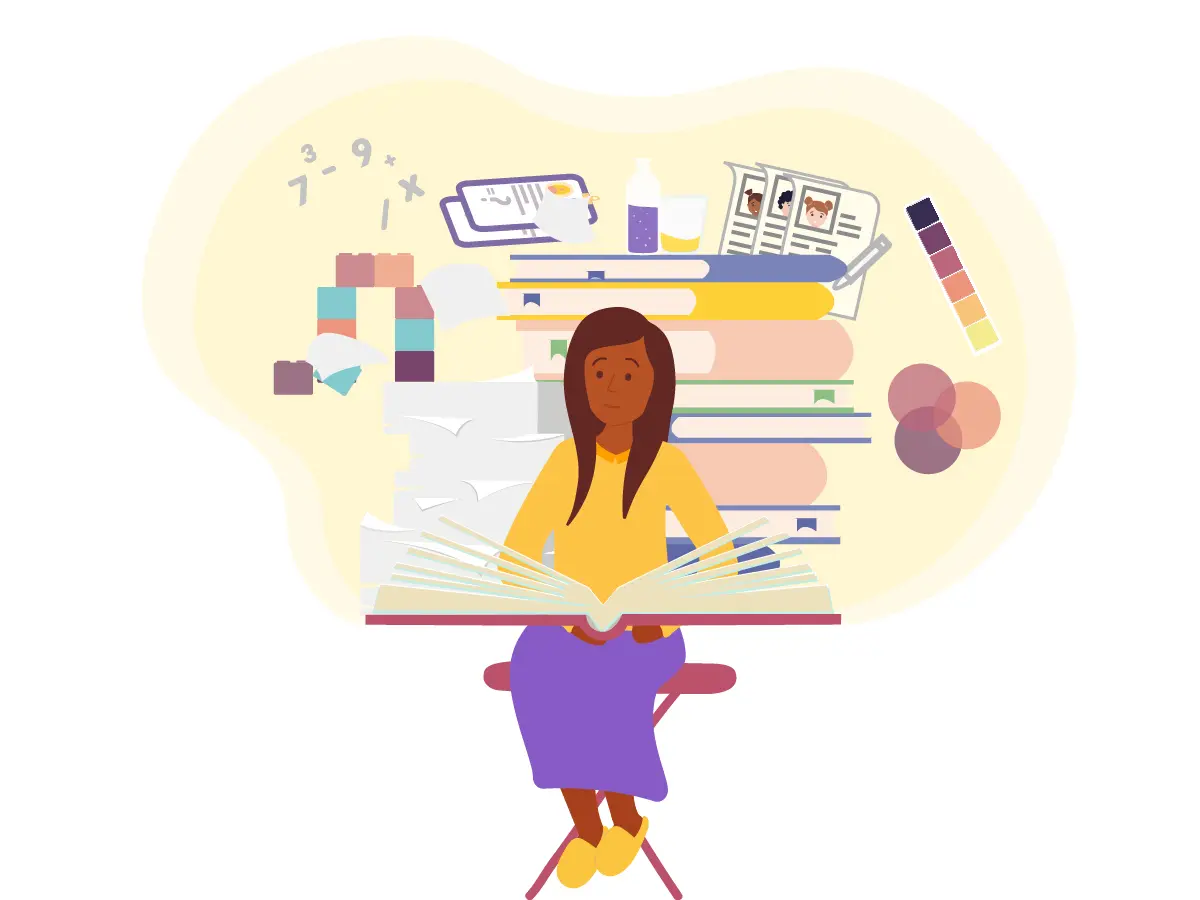settings
children
With Famly since
Curriculum is always going to be bigger than it looks on paper. It’s got to meet the needs of each and every child.
That’s what Jan Dubiel told me, and he ought to know — he helped develop the new EYFS, coming next year.
Jan is an internationally-recognised specialist in early years education. In fact, in 2018, the Times Educational Supplement named Jan as one of the ten most influential people in British education.
Jan has decades of experience in the sector, as a Nursery, Reception and Year 1 teacher in schools across Britain and then leading teams as an Early Years coordinator. He is the former Head of National and International Development at Early Excellence, and now works as an independent speaker, consultant, trainer and author focusing on Early Years policy, pedagogy and practice.
At the Nursery World Show 2020 in February, Jan and I connected for a conversation about how curriculum meets the real world, and how practitioners can understand these more abstract learning goals — and make them into meaningful, everyday practice for their children.
You can check out snippets from the interview and read key takeaways below, or scroll to the bottom of the page to watch the full 16 minute interview.
Curriculum, pedagogy and assessment: What’s the difference?
Curriculum, pedagogy and assessment are all interrelated, but each deserves their own consideration from educators. Curriculum is about the idea of mapping out progression through content, so teachers have an idea of what children should know. Pedagogy is the technique and approach that each practitioner takes to help children engage with the curriculum. Curriculum also inherently defines what needs to be assessed.
Within the idea of curriculum, there’s still room for debate. Should it be about measuring quantitative knowledge and memory, or about teaching certain skills? How about evaluating certain behaviours? The answer, as with many things, likely lies in a balance of all of these.
Turning EYFS goals into real life learning

Every practitioner’s own pedagogical approach is what gives life to curriculum. Because it’s so personal, curriculum is always bigger and more complex than what the EYFS lays out. It’s got to be adopted to meet the needs and interests of every child, or groups of children.
Also, much of what we teach isn’t explicitly mentioned in our curriculum. Jan gives the example that basic geographic knowledge is mentioned in just one sentence in the EYFS goals, but this could easily turn into a week of lessons all about mountains, rivers, streams and the world around us.
Recognising everyday learning moments
The best curriculum is the one that educators internalise and make their own. Learning shouldn’t be a direct prescription from the curriculum, but supported and introduced naturally as it’s relevant for each day.
For example, Jan was in a classroom where the little ones were all playing with magnets, and the practitioner could easily introduce them to terms like “attract,” “repel” and “nonmagnetic”. These lessons resonated more deeply than the children than just sitting them down and running through a vocabulary list.
Why self-led learning matters
Memory is key to how children internalise new information. It’s everything, really — all that you do, understand and know depends on your ability to recall things you’ve learned and experienced before.
Allowing the child to lead and demonstrate their learning is critical here. It gives them a chance to demonstrate what they already know, because they get to demonstrate it in a self-driven way that naturally draws on the skills and concepts they can recall. But this doesn’t mean it’s hands-free for the practitioners — little ones can still use a nudge here and there to get going.
Jan’s latest work with the EYFS
Many settings still use Development Matters as a way to tick off steps children have attained, and Julian explains why this is such an unecessary burden on practitioners.
He also discusses next steps (something we’ve covered before with Sue Allingham), and why trying to have formal next steps for every child is a “nightmare” and can stop us from looking at the big picture.
How to focus assessment on the children who need it most
Jan was on an expert advisory group supporting the development of the EYFS. He wasn’t responsible for shaping the original Early Learning Goals, but was part of a group that looked at the outcomes of the pilot program.
The Early Learning Goals are just outcomes, he explains — how they emerge in real life is still very dependent on how teachers and practitioners interpret them. Jan points to the new Early Learning Goal of self-regulation as a big step forward, validating its importance for children’s learning and development.
But again, this external curriculum always needs to be shaped to each individual practice. It’s a back-and-forth process that must meet the needs of each setting and its children.
The full Jan Dubiel Interview
Here’s the full 16-minute interview with Jan, where he and I discuss:
- The relationship between curriculum, pedagogy and assessment
- How to consider each of these three by considering their intent, impact and implementation
- The debate on how to balance curriculum between supporting quantitative knowledge, skill development and healthy behaviours
- The difference between prescribed and actual curriculum — what gives colour and character to abstract learning goals
- Why it’s important for teachers to make curriculum their own
- How much of what we teach children isn’t explicitly mentioned in the curriculum
- Why we need to recognise everyday learning moments, and making learning come naturally
- The importance of self-led learning for children
- How memory informs nearly every other aspect of learning and personal development
- Jan’s role with the EYFS, and new developments for the future
The big ideas
Try learning journals for free
Add observations, and build digital learning journals to share with families instantly. All with your completely free 14-day trial.
Get started









